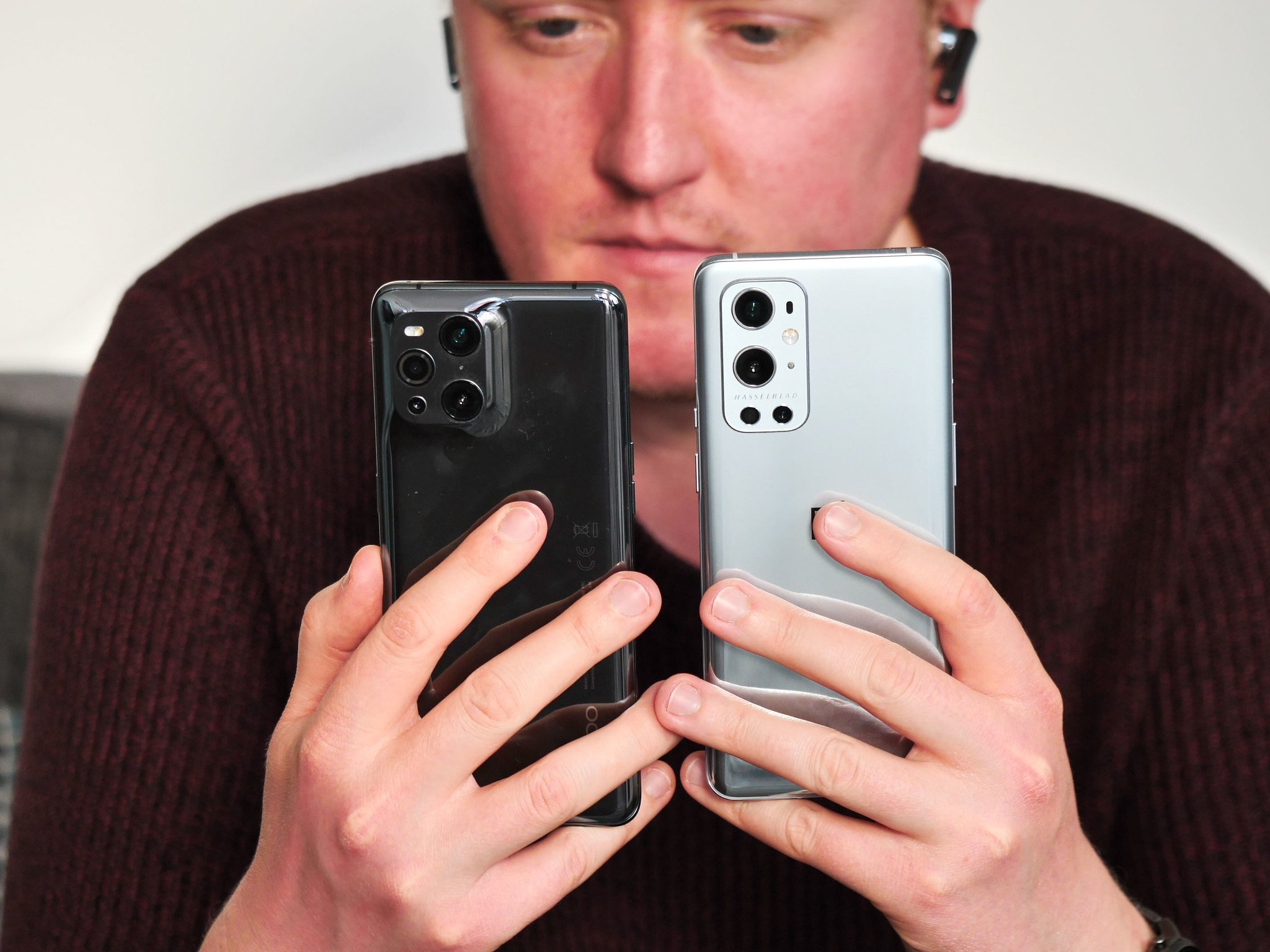In 2022, OnePlus and Oppo's flagships are two sides of the same coin
With its latest round of phones, Oppo splits its best tech between the Find X5 Pro and OnePlus 10 Pro - with confusing results.
Although the partnership has become more public over the past year, OnePlus and Oppo have always enjoyed a pretty close relationship behind the scenes. Back in the days of the OnePlus 5 and OnePlus 6, the OnePlus flagship would effectively be a rebadged version of the main Oppo handset, though with higher-end internals. More recently, as the high-end phones have diverged, a similar pattern has emerged in some of OnePlus's cheaper Nord phones. The entry-level Nord N100, for example, was basically a rebadged Oppo A53 running different software. With these two brands, crossing the streams isn't anything new.
Nevertheless, the merger of OnePlus into Oppo in late 2021 makes things official and a lot more public. And as both brands' 2022 flagships break cover, we're getting our first glimpse of what this closer relationship will mean in real terms.
The unusually early Chinese launch of the OnePlus 10 Pro has already given us the specs and major features of that phone, even though questions remain about its software. And in recent days the first major leak of the Oppo Find X5 Pro has laid bare some of that device's main specs, which line up right alongside the OnePlus phone: Snapdragon 8 Gen 1, a 120Hz second-gen LTPO display, 5,000mAh battery and 80W wired charging plus 50W wireless. (Specs sure to be shared among many of 2022's best Android phones.) Even the branding of those charging standards is aligned across both brands, with OnePlus's Dash Charge being eschewed in favor of Oppo's VOOC.
Hasselblad is coming to Oppo phones, along with custom photo-processing silicon.
The leaked photos of the Find X5's back panel also reveal a Hassleblad logo - a sign that the photographic partnership between OnePlus and the veteran camera brand has been extended to Oppo in its latest generation of phones. That's one less unique selling point for OnePlus. And at the same time, Oppo's custom MariSilicon X chip - a combined NPU/ISP designed to enhance AI performance and image processing - has been confirmed for future OnePlus phones.
What's more, with plans currently in motion to align the software on OnePlus and Oppo phones around a single unified OS, the two brands' flagship phones increasingly seem like two sides of the same coin. In 2022, it appears OnePlus is to Oppo what Honor once was to Huawei - the name might not be the same and the phones may look slightly different, but buyers are getting the same basic experience with both phones, as well as a lot of overlapping technology.
But unlike Huawei and Honor, where Honor was clearly the junior brand with cheaper and often lower-specced phones, the crossover of features and tech between OnePlus and Oppo means it's not always easy to see the target audience for each brand.
This generation, for instance, OnePlus has the superior camera sensors, but Oppo has its custom MariSilicon chip. Both have Hasselblad-tuned imaging, so which is Oppo's best camera phone? It's not really clear. Once both have the same basic software experience, there'll be even less to distinguish one from the other.
Oppo needs to decide who each of its brands is actually for.
It's possible Oppo will surprise us with some hitherto unknown whizbang camera features in the Find X5 Pro, but based on the leaks it seems we're getting a fairly modest upgrade from last year's Find X3 Pro. (That phone's most notable camera feature, the microscope camera, is absent from the most recent leaks.) The Oppo Find series has flirted with camera greatness in the past, with 2020s' genuinely fantastic Find X2 Pro and its 5X periscope telephoto, but two years later it looks like the brand may be treading water in this area, perhaps to allow OnePlus breathing space at the high-end.
Meanwhile OnePlus, which is pushing ahead with upgraded camera hardware in 2022, faces an identity crisis of its own around software. OxygenOS was once the jewel in OnePlus's crown - a real differentiator that drew enthusiasts to its products. These days it's increasingly seen as a buggier re-skin of ColorOS. There've been plenty of headlines around the latest OxygenOS 12 release in recent months, and few of them have been positive.
If Oppo and OnePlus are to succeed in 2022, they need to clearly show who each brand is actually for. Is OnePlus still for performance enthusiasts? And with Hasselblad co-branding on both devices, which is the Oppo phone for keen photographers?
The folding of OnePlus into Oppo is still a relatively recent development, and it's worth bearing in mind that the phones being launched now may have been well into development before the decision to merge was made. So perhaps it's only natural that this generation of products is a little disjointed.
In the coming year, we're hoping to see more clearly defined products from both brands that make sense as part of a coherent, combined lineup of handsets. If the Oppo mothership can leverage its vast technical resources in a way that makes sense for both Oppo and OnePlus, next year's flagship products could be better than ever.


